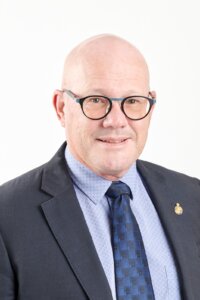
Waipa District Council
Waipā district councillors have discussed communications with the public in response to Chief Ombudsman Peter Boshier’s recent report.
Boshier took issue with councillors for doing too much work behind closed doors, and echoed some concerns voiced by The News about how workshops
were used to brief councillors.
A staff report – to a workshop on Tuesday – covered how Boshier had started an investigation in August 2022 into eight councils – Waipā was not one of them – and published his finding last month.
They included 24 “expectations” relating to council meetings.
Waipā District Council released the staff report to The News well ahead of the workshop, which began a few hours before we went to press.
The eight-page document considered changes, including developing training for staff on the difference between governance and operational parts of council, releasing agendas when they are ready rather than at a statutory deadline, and publishing open and public excluded meeting schedules in advance.
Councillors also discussed extending the range of meetings which are now live streamed – aproposal which could come with
additional costs.

Garry Dyet
They heard Boshier had acknowledged workshops were a legitimate tool and could be held in a public excluded environment, and the council believed it did comply with rules – but it was prudent to look at the 24 expectations.
Councillors spoke in favour of material from workshops being proactively released after meetings and quarterly meetings to review
the release of material public excluded items.
In the case of public excluded meetings, chief executive Garry Dyet said staff occasionally needed to share information with council and have a frank discussion on matters – “we are sometime driven by deadlines beyond our control”.
Cr Lou Brown acknowledged councillors sometimes did a “deep dive” when being made privy to commercially sensitive information and he was concerned councillors were being pushed too far by the Ombudsman report.
Mayor Susan O’Regan said posting videos and information on social media was useful in “demystifying” what the council was doing.
Dyet said decisions around those matters were his to make but staff would consider the discussions as they reviewed the recommendations from the Ombudsman’s report.









